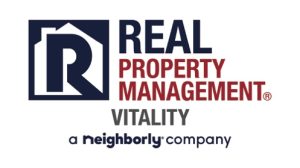The Role and Importance of Property Management
Introduction to Property Management
Property management is a crucial aspect of real estate ownership and investment. It involves the administration, operation, and oversight of residential, commercial, and industrial properties. Property managers play a vital role in ensuring that properties are well-maintained, tenants are satisfied, and owners receive a steady income stream. With the increasing complexity of property ownership and the growing demand for rental properties, the role of property management has become more important than ever.
The Benefits of Professional Property Management
One of the primary benefits of professional property management is the expertise and experience that property managers bring to the table. They have a deep understanding of the local real estate market, rental laws, and regulations, which allows them to effectively market properties, screen tenants, and negotiate leases. This expertise helps property owners maximize their rental income and minimize vacancies.
Additionally, property managers handle the day-to-day operations of properties, relieving owners of the time-consuming tasks associated with property management. From collecting rent and handling maintenance requests to dealing with tenant disputes and evictions, property managers ensure that properties are well-maintained and tenants are satisfied. This allows property owners to focus on other aspects of their investment portfolio or enjoy their free time without the stress of property management.
Key Responsibilities of Property Managers
Property managers have a wide range of responsibilities that contribute to the successful management of properties. One of their key responsibilities is marketing and advertising vacant units. They use various channels, such as online listings, social media, and local advertisements, to attract potential tenants. Property managers also conduct thorough tenant screenings, including background checks, credit checks, and rental history verification, to ensure that only qualified tenants are selected.
Once tenants are in place, property managers handle lease agreements, rent collection, and property maintenance. They ensure that leases are properly executed, rent is collected on time, and any maintenance issues are promptly addressed. Property managers also act as a point of contact for tenants, handling their inquiries, concerns, and requests. In the event of tenant disputes or evictions, property managers navigate the legal process and ensure that the owner’s interests are protected.
The Importance of Effective Property Management
Effective property management is crucial for both property owners and tenants. For property owners, it ensures that their investment is well-maintained and generates a steady income. A professional property manager can help owners achieve higher rental rates, reduce vacancies, and attract quality tenants. They also have the expertise to handle legal and financial aspects of property management, ensuring compliance with local laws and regulations.
For tenants, effective property management provides a safe and comfortable living environment. Property managers ensure that maintenance issues are promptly addressed, common areas are well-maintained, and any concerns or complaints are resolved in a timely manner. This contributes to tenant satisfaction and retention, which is essential for property owners to maintain a stable rental income.
In conclusion, property management plays a vital role in the real estate industry. The benefits of professional property management include expertise, time-saving, and efficient operations. Property managers have key responsibilities such as marketing, tenant screening, lease management, and maintenance. Effective property management is important for both property owners and tenants, ensuring a well-maintained property, higher rental income, and tenant satisfaction. With the increasing complexity of property ownership, engaging a professional property manager has become essential for successful real estate investment.







